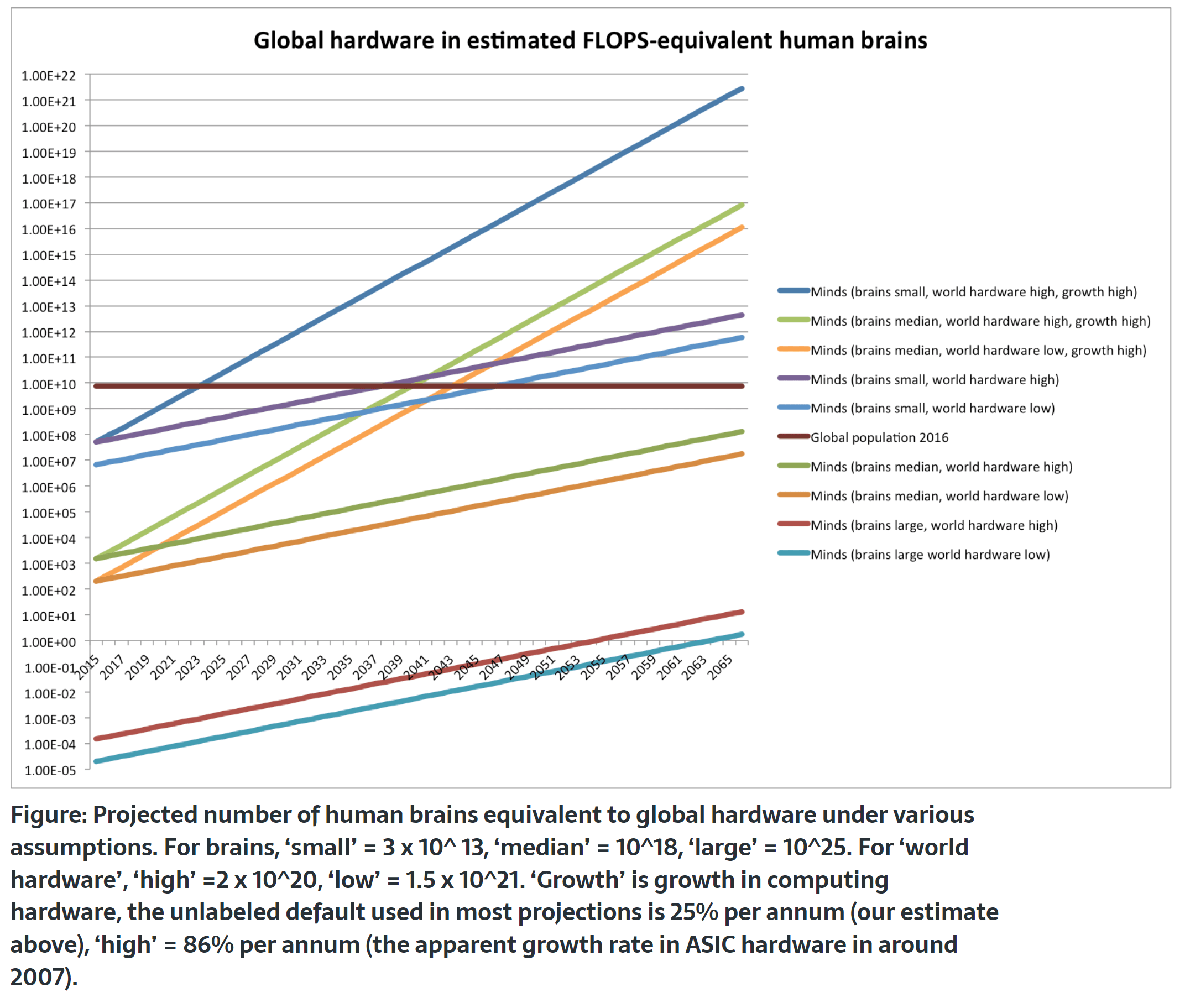This is a linkpost for this article from AI Impacts.
[This page is out of date and its contents may have been inaccurate in 2015, in light of new information that we are yet to integrate.]
Computing capacity worldwide was probably around 2 x 1020 – 1.5 x 1021 FLOPS, at around the end of 2015.
According to different estimates, the human brain performs the equivalent of between 3 x 1013 and 1025 FLOPS. The median estimate we know of is 1018 FLOPS.

Based on this figure, it looks like the global computing capacity of all hardware will exceed that of all humans somewhere between now and the end of the 22nd century. So, if one thinks computing capacity is a decent proxy for utility, artificial sentience can be super important. It is actually one of 80,000 Hours' most pressing problems.
Relatedly, I liked the article Why Your Laptop May Be Marginally Sentient by Brian Tomasik.
